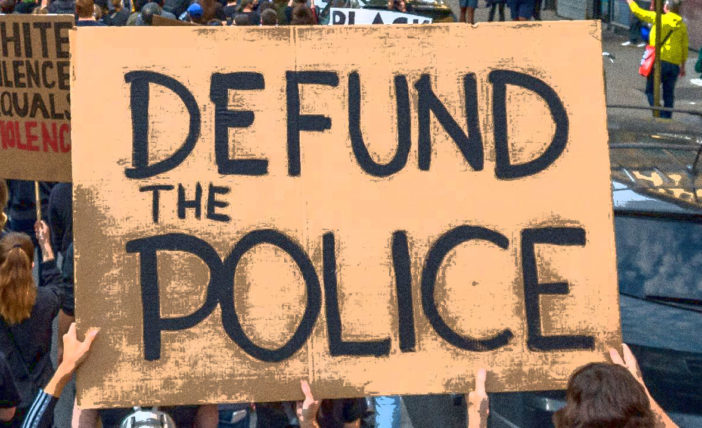A few months ago, calls for police reform began to resonate across the country.
Now, months later, protests continue with few constructive strides toward progress. Instead, knee-jerk reactions and bold catch phrases have been put forth that leave more questions than answers.
‘Defund the police’ is one of the phrases bantered about. In the many protests I have attended I have asked the question of those carrying signs in support, asking what does “defund the police” mean. Most can’t really define it. They give a vague statement that in some way fewer police means fewer confrontations and a reduced police presence.
According to Brookings sociologist Rayshawn Ray, “defund the police means reallocating or redirecting funding away from the police department to other government agencies funded by the local municipality.”
I have attended hundreds of neighborhood meetings, beginning in the mid 1980s as a neighborhood policing team member and later as a community policing supervisor and then as an area district command and patrol captain. During that time, I have never had anyone request a reduced police presence or reduction in service.
In fact, it was almost always the opposite.
People liked having a police presence in their neighborhoods. A recent Gallup poll found that amongst black and white Americans the response was nearly equal, with over 80 percent wanting a police presence in their communities.
People have come to expect that the part of government that answers their phone calls 24 hours a day can do just about anything. After all, providing for the safety and security of the public is at the top of the list as a primary function of government.
Police over the years have become the catchall for dealing with the symptoms of everything that ails society.
As a society, we have asked our police to respond to the results of deeper issues in desperate need of solving, such as socioeconomic disparity, school dropout rates, and dysfunctional families.
Every day, police across the country respond to people undergoing a mental health crisis when what they need are real mental health solutions.
Police have been asked to deal with homelessness and the crime associated with supporting a drug habit, when what citizens need is a solution to the problem of drug addiction.
The question is, what does the community want police to stop doing?
We may get answers soon thanks to COVID-19. Across the country, police budgets are being cut to deal with dwindling city coffers due to the economic cost of the pandemic. There will be fewer cops on the street and in the station. It will not be business as usual.
We’ve seen this happen before. Hundreds of police departments reorganized to provide only basic police services during the recession from 2007 to 2009. Positions were eliminated and departments had to rethink policing.
It looks like we are heading down the same path now.
What is it you, as a citizen, want cut? What calls don’t you want answered? What cases don’t you want investigated?
Is there really a scenario where police officers become like firefighters, manning a station and responding only when called?
To move forward requires taking a real look at what the police do day in and day out — a question that critics and reformists alike have failed to examine. Police don’t just drive around all day rousting people and ruining their day with traffic tickets.
Cutting the gang unit and investing in social workers sounds great unless you are the family that has to bring their kids inside after dark and lock the doors because it’s just not safe outside in the neighborhood — where shootings, robberies and theft are an everyday occurrence. Those people need the police and they want them now.
I’m willing to admit reform is inevitable and appropriate given where we are today.
In the haste to move forward we need to be thoughtful and deliberate, taking into account the primary mission of government in providing for safe and livable neighborhoods for everyone. We need the police to make sure that happens.
 Behind the Badge
Behind the Badge



